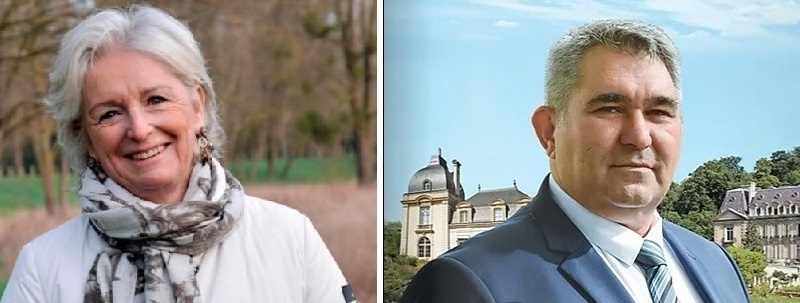Jouy-en-Josas Elections – Marie-Hélène Aubert refuses A Public Debate
On Friday, February 28th, at 6:19 p.m., the candidate informed contrib.city, via a spokesperson, that she did not wish to participate in a debate. According to the spokesperson – Mrs Marie-Hélène Aubert did not see fit to respond directly to the contrib.city website – these public discussions are reserved for presidential elections.
Yes, indeed, the presidential candidates participate in debates. Even if it means they have to use planes, they also meet the inhabitants in their cities. If they carry out both types of action – contradictory conferences with their opponents and meetings with voters – it is because these two kinds of public activities closely complement each other and build democracy, especially at the local level.
My experience in (private and public) social housing rehabilitation – a very sensitive and complex subject – taught me that it is in the dialogue and the exchange of experiences and ideas from the different actors, even those with apparently different urbanistic and social interests, that lie solutions. Whether in the Paris region, New York or London, where my different wanderings have brought me, I have found that it is by helping families, owners and managers (local authorities and associations) to meet , that not only were unfit-for-habitation issues resolved but that housing-related questions such as education, vocational training, transport, environmental risks (fire, flood) and the protection of green spaces also found answers.
So, how is it possible will you ask me? It’s simple: whether in a municipality, a neighborhood or a building, when an urban and social situation deteriorates, all the actors suffer and are faced with a negative spiral. An insalubrity problem leads to the fall in the payment of rents and that of local investments, then the departure of the inhabitants (those who can leave) who are replaced by others, poorer even if they are rich in ideas and of dynamism. The public image of the city, district or building is gradually and surely sinking. Except that… A solution is possible and I have experienced it: it has proven its effectiveness, and its profitability, both on the field and in academic research, the second being relevant only after having been tested with the (peri)urban daily reality. The contradictory meeting solution was simple, but it required courage, at least in the Paris region, before little by little, the different actors became aware that their interests were linked.
Denying the Jouy-en-Josas inhabitants a debate for the municipal elections (even if it means organizing it on live through Internet streaming due to the French recent sanitary measures) deprives them of an interactive public discussion from which validations of new experiences and ideas would have emerged. This debate would have allowed each of the two contenders to no longer be in communication (this is the contemporary word for advertising) but rather in the confrontation of programs, while respecting speaking times. This meeting, accepted by the other candidate, Grégoire Ekmedje, would have helped (even) more each Jouy-en-Josas resident to participate in the daily life of his/her town and to integrate into the local Res Publica.
Links:
https://www.unavenirpourjouy.fr
facebook : Rassemblement pour Jouy – Twitter : RPJouy
Montage de couverture : BdF.
Sources : RPJ et UAPJ.

